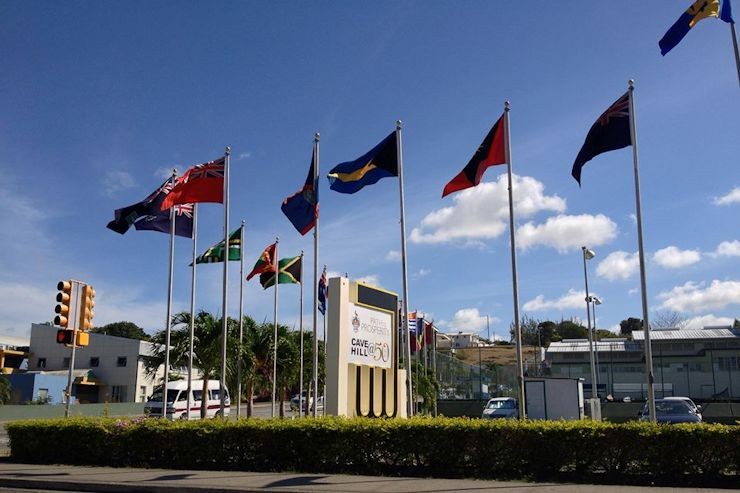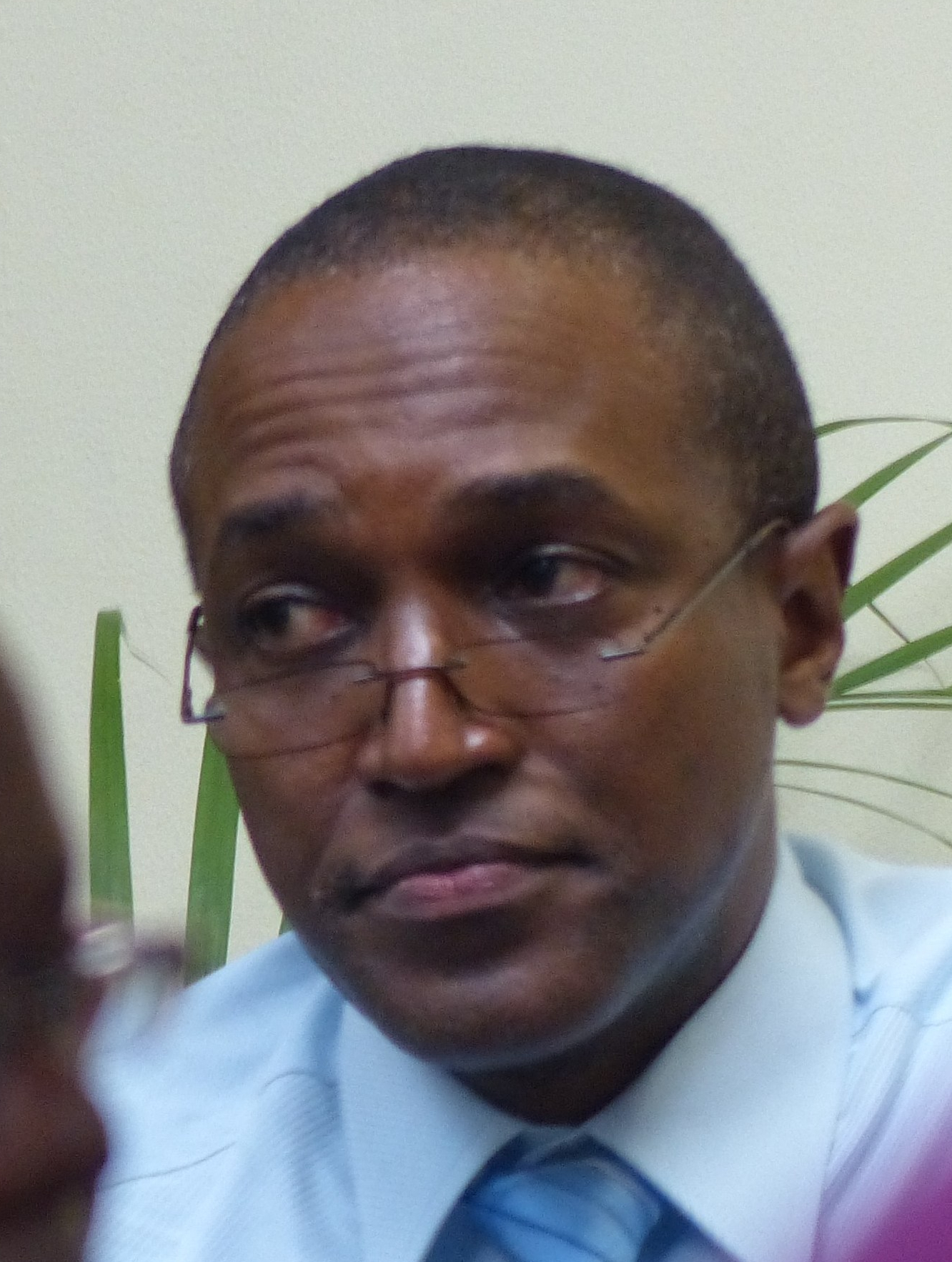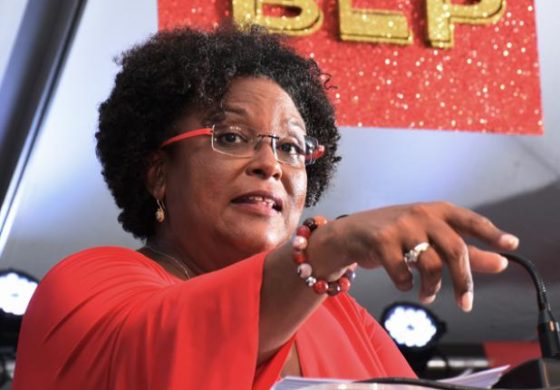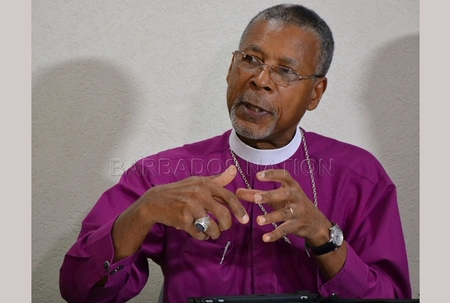Anti-gay laws ‘damage human rights and health of all Barbadians’
Maurice Tomlinson of Jamaica and Canada has been involved in…
The harsh anti-buggery laws of Barbados contribute to homophobic stigma that discourages LGBT people from getting health care and has helped boost their HIV infection rate to 10 times that of the country’s general population. That’s one of the reasons three Barbadians last week challenged those laws at the Inter-American Commission on Human Rights (IACHR), says activist/lawyer Maurice Tomlinson, who is assisting the initiative.

This is the text of Tomlinson’s remarks at last week’s press conference in Barbados about the IACHR case:
Good morning. Thank you all for joining the petitioners for this historic event.

My name is Maurice Tomlinson and I am a Jamaican attorney-at-law who spent two wonderful years studying in this beautiful country and at this Cave Hill campus. I am also a senior policy analyst with the Canadian HIV/AIDS Legal Network, which promotes the human rights of people living with, at risk of or affected by HIV or AIDS, in Canada and internationally. We do this through collaborative research and analysis, litigation and other advocacy, public education as well as community mobilization efforts. The organization has delivered hundreds of workshops for various audiences, presented numerous briefs to various legislative committees, and intervened in or supported proceedings before courts in Canada, Europe and the Caribbean.
In the Caribbean, the Legal Network has been working with our local partners to rid the region of homophobic laws and policies. This has included mounting legal challenges to anti-gay laws, conducting police LGBT sensitivity training, facilitating religious dialogue on LGBT human rights, delivering capacity building and human rights training for NGOs and hosting visibility campaigns such as Pride celebrations. The Legal Network has been proud to work with Barbadian groups and individuals, many of whom are present here today, to deliver all these initiatives in the country.

Our work challenging anti-gay laws is based on national, regional and international research that confirms how these statutes not only criminalise LGBT people but contribute to discrimination and other abuses against them. They create barriers to LGBT people’s access to health services, including effective HIV prevention, treatment, care and support interventions. These laws directly contribute to the Caribbean having the second-highest HIV prevalence rate after sub-Saharan Africa. Barbadian men who have sex with men (MSM) are particularly vulnerable and have an estimated HIV prevalence rate of 14%, compared to 1.3% in the general population. This is a public health crisis with significant negative social and economic consequences, which undermine Barbados’ development.
During the course of our work and research in Barbados we identified that Sections 9 and 12 of the Sexual Offences Act contribute to a climate of homophobia and transphobia that leads to serious and significant human rights violations against Barbadian LGBT people. Although neutral on their face, the Barbadian government stated clearly at the United Nations that these laws reflect and retain the intent to criminalize all forms of consensual same-sex intimacy between persons over the age of consent. And Section 9 of the SOA is the worst anti-gay law in the Western Hemisphere, carrying a maximum penalty of life imprisonment.
Three brave Barbadians, a trans woman, a lesbian and a gay man, came forward to challenge these laws. Today they are filing a petition before the Inter-American Commission on Human Rights outlining ways in which these laws violate the rights enshrined in the American Convention on Human Rights, to which Barbados is a state party. Barbados has one of the most robust systems internationally to adjudicate the human rights of its citizens and is the only Anglophone Caribbean country that has recognized the jurisdiction of the Inter-American Court of Human Rights. The petitioners anticipate that the case being challenged today will eventually reach that Court.

In 2004 Barbados’ current Prime Minister, The Honourable Mia Mottley, who was then the Attorney General, commissioned a study on laws that negatively affect the national HIV response. She noted then that:
- “…a government in a pluralistic society must accommodate and respect the human rights and the dignity of each individual.”
- “To that extent, law, which seeks to discriminate in a society whose history has been scarred with the cancer of discrimination, has in fact, to be reformed.
- “Because discrimination, on any basis whatsoever, cannot be tolerated in our society for it has truly been a cancer throughout our history,” and
- “The sooner the issues can be addressed the better, because for every day the issue remains unresolved, our risk factors are allowed to increase; so, sooner rather than later.”
We agree with the Prime Minister.
Among other things, this study recommended the repeal of Sections 9 and 12 of the Sexual Offences Act. The petitioners therefore hope and expect that, given her previous statements 14 years ago, Prime Minister Mottley and her government will accept that the laws are damaging to the human rights and health of all Barbadians, and particularly LGBT Barbadians, and must be struck down in accordance with Barbados’ national and international human rights obligations.

Some may argue that these laws reflect Barbados’ strong Christian tradition. However, as former bishop of Barbados and Archbishop of the West Indies, The Most Reverend Dr. the Honourable John Holder declared: “Using the [biblical] story of Sodom and Gomorrah to support the sodomy law has no basis, none whatsoever.”
Furthermore, as Barbados is a secular democratic state, the rights of Barbadians must be determined in accordance with established legal principles and not religious ideology.
An alien culture of homophobia has recently been imported into Barbados by right-wing religious extremists and has sown fear and division among citizens. However, as someone who spent two memorable years in this country, and who returns often to enjoy the many exceptional attractions of the island, I know that Barbadians are a caring people who respect diversity and celebrate tolerance. Striking down these archaic and inhumane laws will do just that.
It is time for Barbados to jettison the unnecessary and unhelpful Sections 9 and 12 of the Sexual Offences Act, relegating them to the dustbin of history. The laws serve no purpose other than to stigmatize and preserve historic prejudice against LGBT people, while also creating legal confusion about the rights to private intimacy of all consenting adult Barbadians.
This must end. And today’s action starts that process.
We look forward to receiving the support of all well-thinking Barbadians as we collaborate to realize the full rights of every Barbadian. Thank you.
Related articles:
- Here’s why activists need international help vs. Barbados (June 2018, 76crimes.com)
- Launching an Inter-American challenge to Barbados anti-LGBT laws (June 2018, 76crimes.com)
- With a boost from Rihanna, Barbados rejects homophobia (May 2018, 76crimes.com)
- The harshest anti-gay law in the Western Hemisphere (March 2018, 76crimes.com)
- Barbados Pride combats nation’s anti-LGBT hatred (November 2017, 76crimes.com)
- In Barbados, anti-gay march ends in mini-Pride Parade (October 2017, 76crimes.com)
- Barbados training: Police learn about LGBTI community (March 2017, 76crimes.com)
- Barbados protests seek repeal of harsh buggery law (August 2015, 76crimes.com)
- Will tourist-dependent Barbados risk staying anti-gay?
- Caribbean youths seek repeal of 6 nations’ anti-gay laws
- Queen honors LGBTI leader seeking change in Barbados
- Progress in Barbados despite harsh anti-gay law
- Barbados: No plan to drop life sentence for anti-sodomy law
- This blog’s archive of articles about Barbados
- This blog’s archive of articles by Maurice Tomlinso




